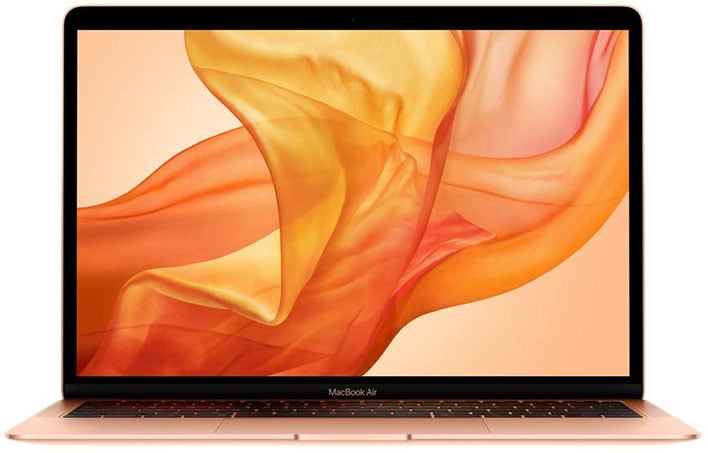Apple 2019 MacBook Air Price Cut Brings Seriously Crippled SSD Speeds

It has been a crazy week so far, thanks to Amazon's 48-hour Prime Day sales event that spurred other retailers to follow suit with discounts of their own. As the dust settles, you can still score a deal on a 2019 model MacBook Air. Should you, though? That depends on how you feel about the downgraded SSD speeds in the newest models.
The refreshed MacBook Air features a 13.3-inch display with a 2560x1600 resolution, and is powered by an Intel Core i5-8210Y, a 1.6GHz dual-core Amber Lake CPU with integrated UHD Graphics 617. It also comes standard with 8GB of LPDDR3-2133 RAM and 128GB or 256GB of SSD storage, as it pertains to the models that are on sale.
Here is how they are priced on Amazon...
- 2019 Apple MacBook Air w/ 256GB SSD: $1,099.99 (save $299.01)
- 2019 Apple MacBook Air w/ 128GB SSD: $989.96 (save $209.04)
Those are some tasty discounts, so long as you are willing to swallow the stunted drive speeds. Multiple sites are reporting that the SSDs used in the newest MacBook Air models run slower than the ones in the previous generation MacBook Air.
The biggest disparity comes from French-language site Consomac. Using the Disk Speed Test tool in BlackMagic, the site reports that sequential read speeds dropped from 2GB/s to 1.3GB/s on the 256GB variant. On the plus side, however, the benchmark also showed write speeds increasing a tick, from 920MB/s to 1GB/s.
Apple Insider also observed a slower SSD read speed. Using the same benchmarking tool, the site said that write performance stayed consistent from the old model to the new one at around 500MB/s (presumably on the 128GB SKU), but saw read performance drop from 1.7GB/s to 1.2GB/s.
The good news for the average user is that those speed comparisons are largely academic. For many tasks, including general purpose computing, the slower read speeds are not going to be noticeable. At all. And in a vacuum, topping the 1GB/s mark is still extremely fast for tasks that feed on storage. SATA-based SSDs, by comparison, top out at around 550-580MB/s on the top models.
That said, the read speed degradation is a bummer for folks who might actually benefit from faster read performance. While still fast in their own right, a 500-700MB/s decline compared to last year's model is significant. We imagine it's a very small subset of users, though, who will find ~1.2GB/s reads to be unacceptable.

